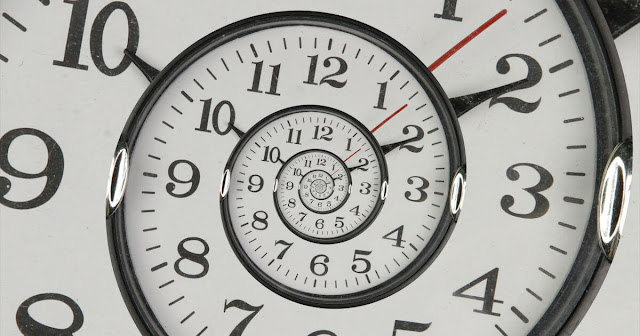With the rise of immersion learning and 40 hour week challenges and such, I feel this might help those who want to push their time to it's limits. As someone who has been doing at a minimum 5 hours a day of Korean for the past 2 years, I started to value my time to the point where it will frustrate me if I feel someone is wasting my time.
I used to spend days not really achieving anything and wondering where the days have gone, I had zero plans for my days and just did things whenever I felt like it except for certain things like exercise that I would do at around the same time every day, which is pretty much what I applied to my language learning.
Before you begin. Literally.
Effectively we are trying to cultivate our skill of building habits. Once you make something a habit it's very easy to stick to it, such as (hopefully) you brush your teeth after breakfast and before bed and no one has to tell you. There is a lot of advice that is very similar to achieve our goal of making a habit, your biggest enemy when trying to complete any task is your brain. We need to prepare the brain to give us the least resistance, ideas that really resonate with me are:
- Putting on your running shoes even if you don't leave the house
- Times your current goal by 10.
- Planning everything the day before
The idea of the first is that you prepare your brain for the act, which in turn makes it easier to actually begin the act. This is to combat the resistance your brain will give you. You'll find once you start something like running it becomes very easy. As with learning a language once you actually start doing 1 hour a day you will find it easier and easier to fit that time into your day.
The second is to deliberately make your goal far too large for your expectations. As humans controlled by the brain we tend to stick to what we can perceive, which is why we get things like Dunning-Kruger effect where we cannot even comprehend our own incompetence. In the same vein it's very hard to understand how much time we actually have to spend on our target language.
If your goal is to study for 1 hour a day, our new goal will be 10 hours. You can gain 2 things from this, either you go full force and manage to complete the 10 hours and surprise yourself or you manage to fit in more than your original goal perhaps by 3-4 times breaking your expectations and shedding new light on what a better plan for achieving your final goal quicker will be.
Finally, one of the best ways of building and sticking to a habit is to just pre-plan everything, and very precisely. The more specific you make your plans for the following days and weeks the more likely it will be that you will stick to the base plan. Like the previous strategy this one is designed for you to fall short and beat your expecations and also similar to the first strategy it will make you more likely to actually go through with your plans.
 |
| This kid is going places |
Planning is Winning
If we plan our day in advance, with specifics we will give ourselves a leg up. I've been doing this for almost the whole 2 years I've been learning. I would always set a specific time frame in which I would complete certain tasks, you can find more about my specific routine here. When I first began I just had a vague plan of just doing some grammar in a certain time frame at like 7-8pm. However as I continued I started to see all the spaces I could add studying Korean into my life. I slowly started to just do it whenever I 'considered' I had free time.
This then led on to me setting specific times and specific goals, I now read 50 pages of a book and watch around 4 hours of tv shows per day while filling the rest of the time with listening to Korean when I can even if it's just music. Having this set structure means I'm less likely to break this habit that I've made. It's also to have importance for certain goals so that you do not get discouraged.
For me I consider reading to be the biggest factor in learning, so as long as I complete my reading which usually takes around 2 hours I am satisfied. This will keep you mentally stable throughout the process. Even on a very busy day I still manage to complete my reading and get in extra time through listening or an hour at the end of the day to watch a tv show.
Now when we plan the specifics we can really start helping to save our time rather than use our time effectively. If we already plan what we are going to read then when we come to read we already know which book to open. This is super effective for saving time, I mean most of you have probably had the plan to watch Netflix and then spend your hour of time that you had planned just looking for something to watch. When we plan we save time.
I understand that not everyone will have 18 hours a day to put into their target language but the aim is to get as much as possible out of your available time and by planning, we can put ourselves in the right mentality to make a habit of studying and also save time that would be wasted on decision making. So let's discuss how we can find ways of racking up immersion time.
| My Korean tracking sheet |
Making time in our 'busy' schedules
This is something I hear a lot "I have no time", "I'm busy". Seeing the successes of some of the learners who have been doing the '40 hour challenge' and the circumstances they are in shows that it is always possible to do more than you think you can achieve. If you are a 'I'll just study 1 hour a day' person looking to maximise your time with your target language then these kind of challenges will push use your time as effectively as possible. These work along the same lines of doing the aforementioned goal x10 except with more 'meme' factor.
The best way to rack up hours is by using passive listening to your advantage. You can read more about listening techniques here. This is especially great for people who think they're 'busy' and will separate those who are actually busy and those that just think they are. Finding all the time in which we can listen while we do menial tasks such as washing up, cooking or commuting, really adds up the hours. While it's not focused time, it's great for fading in and out of to hear words that you already know and strengthen your memory.
Depending on how much you're willing to sacrifice, we can gain a lot of time from activities like browsing social media, playing videogames or staring at the YouTube homepage looking for something to watch. This is where the plan saves you time, once you can see the time that you spend loafing around you can replace it with something concrete. I do not suggest cutting out hobbies but try to replace them with your target language. You can always search your hobbies in google or YouTube and find a wealth of content perhaps even different information and different techniques that are only documented in that language.
 |
| Just so 'busy' with my insta, twitter and facebook |
Mental health and motivation
Spending most of your day immersing in your target language is difficult for everyone. There will be ups and downs just from the journey itself but how do we minimise the stress on our system. Once we have an idea of what we're doing you should notice after a few days where you can best fit in breaks. Try not to compare yourself to others as everyone will have a completely different experience with their mental resources and exhaustion.
I personally have never felt mentally exhausted or had a headache from spending lots of time immersing but some have reported so. I highly recommend getting plenty of water to make sure you are hydrated as it a big factor in migraines and headaches. If you experience any physical effects like this it will definitely affect your motivation to continue immersing, so you may need to take more breaks than others.
 |
| Take regular breaks |
While it's great to get listening in as much as you can it's perfectly fine to just stop and take a break and have some silence. Everyone has a different mentality and reasons for learning often, even for an hour sometimes I will just put on some music while I get on with something else. If you are learning a language closely related to your native language it will take less time to become fluent so there is no need to force yourself to study for 12 hours a day unless you are extremely motivated to learn the language, in which case you will likely get joy from hitting the high hours clocked.
As I explained early having a specific goal that you can focus on should help keep you motivated in the long term. Once you hit this goal you will be mentally free to spend the rest of your time however you please. This goal will obviously depend on your learning goals and free time, so take that into account. No matter how much you want to immerse or how much you want to learn the language it will all be for nought if you stop completely. If needed you can always take periods of less intensity.
For related posts please check out these pages:
- 5 Korean Movies Based on Real Life Events
- Nintendo Switch Games to play in Korean
- 7 Sources From Which to Learn 경상도 사투리
- The Role of Listening in Language Learning
- Realistically How Long Does it Take to Learn a Language?
- Watching Media and Using Subtitles to Learn a Language
- Smartphone Apps For Learning Korean
- How to Use Ridibooks(Korean Ebook Store)
- Using Audio Description for Language Learning
- Should You Learn Korean?
- How to Master the Korean Number Systems
- How to Learn Korean in 2021
- I read 61 Korean books in 2020
- Can You Learn Korean from Kpop?


No comments:
Post a Comment
Share your thoughts on this topic